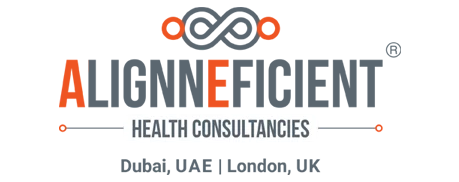Psychological Safety at Work: Five Small Behaviors to Start This Month
If you’re a busy marketer or small business owner in the UAE, juggling clients, deadlines and a hundred WhatsApp pings, you’re not alone. If your team has smart ideas they are not saying out loud, that points to a psychological safety issue. Fixing it is one of the fastest ways to improve performance, retention and innovation across finance, real estate, technology, healthcare and government.
What is psychological safety
It’s the shared belief that people can ask questions, admit mistakes, and challenge ideas without fear of embarrassment or punishment. When teams feel safe, they experiment more, learn faster, and solve problems earlier, before they turn into costly rework.
Why psychological safety matters
Better team performance: Teams that feel safe to speak up consistently outperform similar groups. People contribute ideas, flag risks early and take ownership of outcomes.
More innovation and retention: When safety is strong, you see more new ideas and steadier retention. People share suggestions, ask for feedback and stay engaged.
Smarter decisions: Safe teams surface concerns sooner, challenge assumptions and avoid groupthink, which leads to clearer choices and fewer costly reworks.
Use this as your quick-start guide to psychological safety at work, especially relevant for leaders in Dubai and Abu Dhabi aiming to strengthen employee engagement, workplace mental health and corporate wellbeing.

Actively ask for feedback and really listen
What to do: Build short, regular check-ins. Ask for feedback on projects and on your leadership.
Why it works: When people see you invite critique, trust grows and communication opens up.
Say this: “What’s one thing I can do this month to support you better?”
Pro tip: Do not defend. Take notes, summarise what you heard, and agree on one change you will make.
Admit your mistakes openly
What to do: Be transparent when you miss something. Be honest and direct.
Why it works: Vulnerability from leaders normalises learning and reduces fear of speaking up.
Say this: “I rushed the initial plan and missed key input. I will involve the team earlier next time.”
Ask curiosity questions (not gotcha questions)
What to do: Replace assumptions with genuine curiosity, especially when you disagree.
Why it works: Curiosity lowers defensiveness and invites more complete thinking.
Say this: “That is interesting, what challenges do you see, and how could we handle them?”
Praise effort and learning, not just outcomes
What to do: Recognise preparation, iteration, and lessons learned, even when results are mixed.
Why it works: This builds a growth mindset and encourages smart risk taking.
Say this: “You put real thought into this deck. We did not get the result we wanted, what did we learn that we can apply next time?”
Share your own gaps and ask for help
What to do: Be clear about where you need support or expertise.
Why it works: Leaders who model “I do not know yet” make it safe for others to ask for help early.
Say this: “I am not strong with this software, could someone guide me? Let us learn it together.”

A simple 30-day plan
Week 1: Signal and set up
Say out loud that you want a safer, more open team. Pick two behaviours from this list to try for the next few weeks.
Week 2: Reset meetings
Begin each meeting with 60 seconds of quiet thinking. Rotate who speaks first. Before any decision, ask for one new angle you have not heard yet.
Week 3: Recognition and follow through
End every meeting by thanking someone by name for a useful contribution. Keep a visible decision log with four basics: issue, action, owner, follow up.
Week 4: Review and adjust
Run a quick pulse with three questions:
- I can raise concerns without negative consequences.
- My ideas are taken seriously.
- We follow up on feedback.
Keep what worked and tweak one habit for next month.
Signs you’re getting it right
- Fewer side chats after meetings, more questions in the room
- Clearer ownership and faster, better decisions
- People flag risks earlier, not after launch
- Higher energy and participation in huddles and workshops
Building psychological safety is a series of small, human moments: listening well, crediting effort, asking better questions. Over time, those moments create a culture where people think bigger, learn faster, and deliver work they are proud of.
AlignnEficient Health Consultancies helps UAE organisations design practical, leader-led habits that strengthen team culture, employee wellbeing, and performance. If you would like support rolling out a 90 day plan with manager training, meeting norms, and simple measurement, get in touch with us. Let us build trust, one small action at a time.
The five habits to start now
- Ask for feedback and really listen
- Own your mistakes and say what you will do differently
- Lead with curiosity and invite other views
- Recognise effort and learning, not just outcomes
- Share your gaps and ask for help
